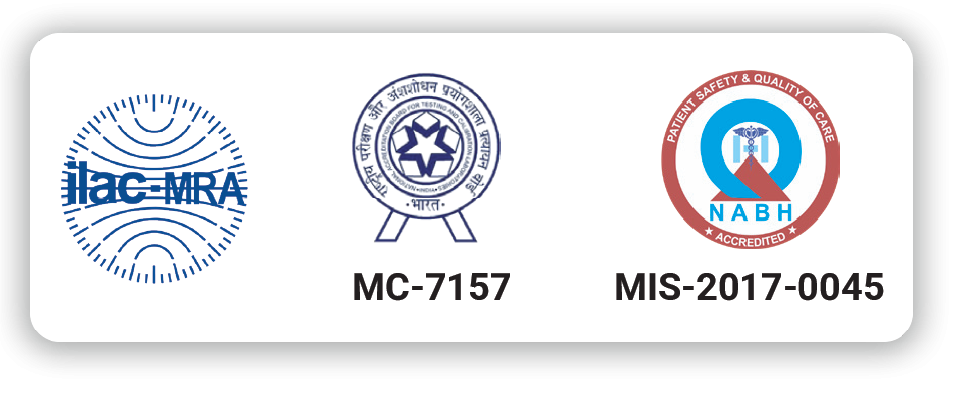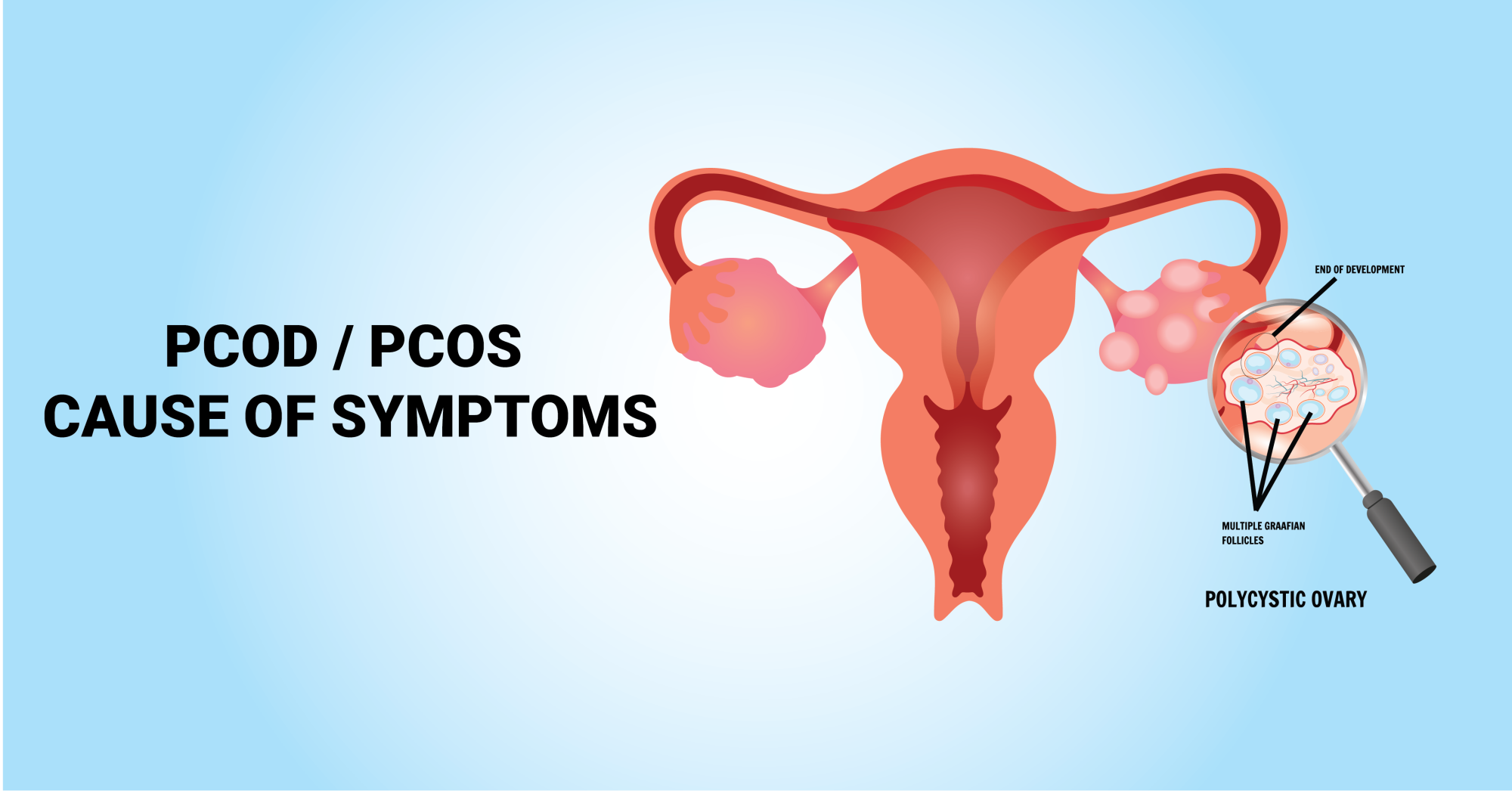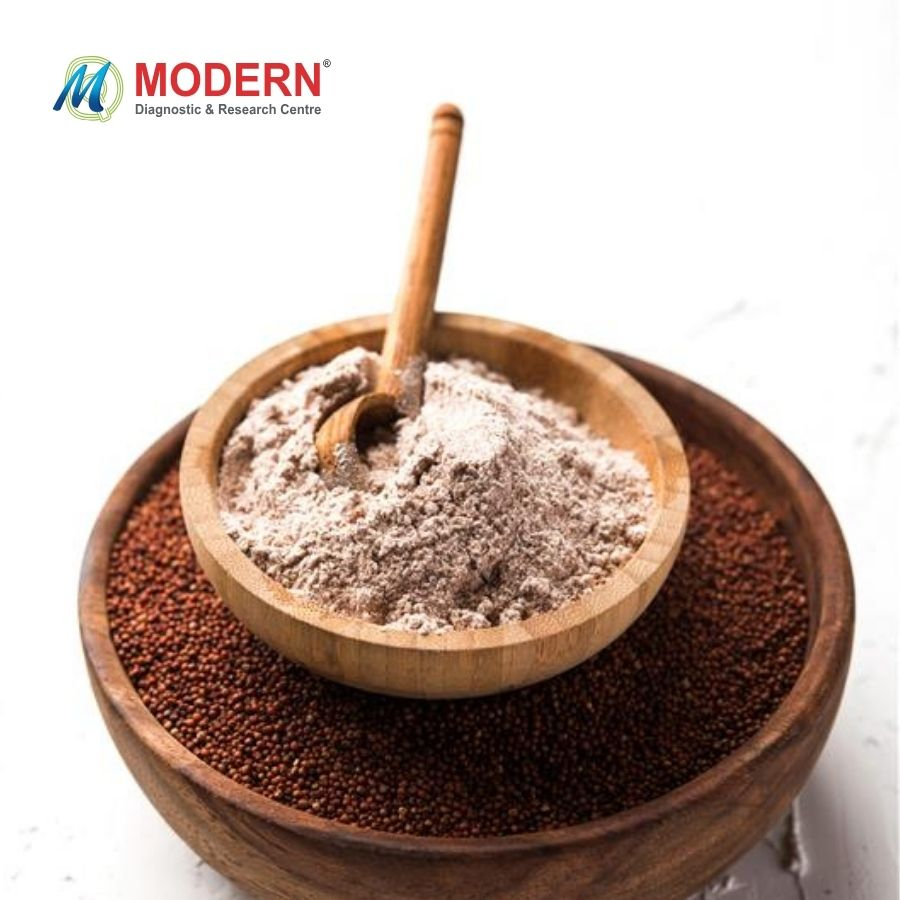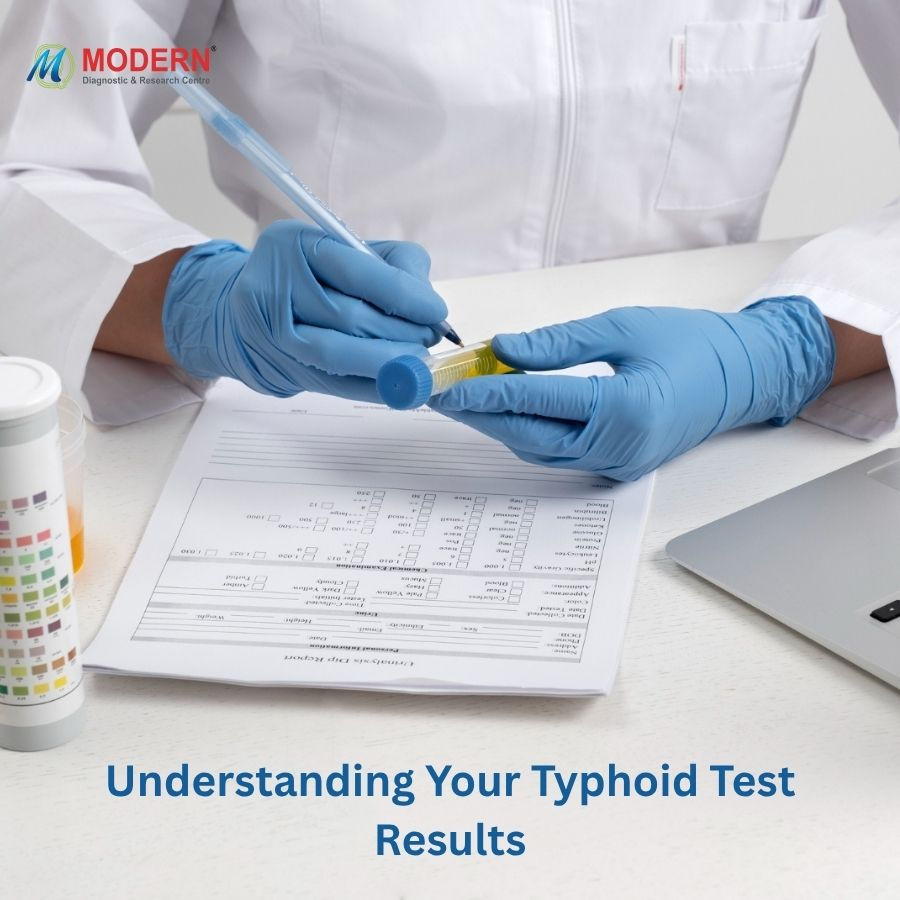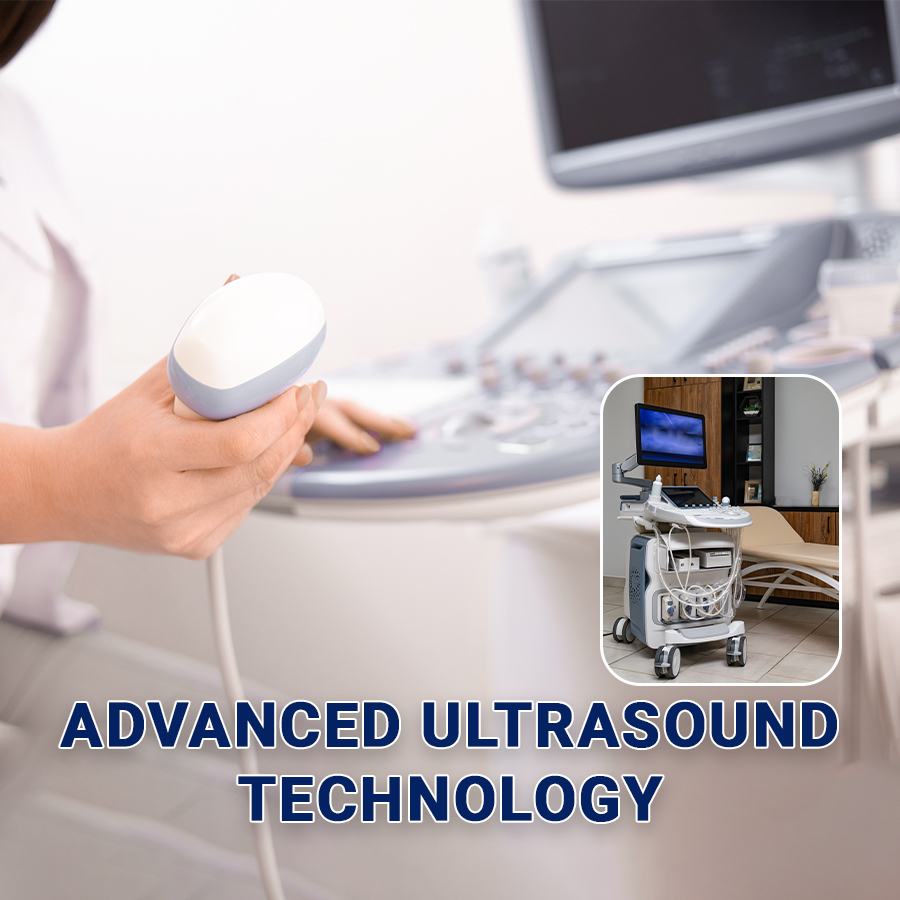PCOS (polycystic ovary syndrome) and PCOD (polycystic ovarian disease) is a medical condition that affects approximately 10% of women in the world. In women's bodies, reproductive organs produce hormones like estrogen and progesterone that help regulate the menstrual cycle, it also makes a small amount of male hormones called androgens. In the case of women who are suffering from PCOS, they produce more male hormones in comparison to women who are suffering from PCOD. This abnormal hormonal imbalance becomes the cause of skipped or missed menstrual periods and makes it harder to get pregnant.
PCOS is a more severe form of PCOD that can cause several medical conditions -
-
Diabetes
-
Infertility
-
Excessive hair growth
-
Acne and pimple
-
Dark patches on the body
PCOD is a common hormonal disorder but it does not have a permanent cure, it can be controlled by changing lifestyle, exercising, maintaining a healthy, and eating nutritious food.
PCOD - Polycystic ovarian disease commonly known as PCOD is medical condition in women, in which their ovaries start releasing immature or partially immature eggs in significant numbers and after a period of time these immature eggs form as cysts in ovaries. Which makes women ovaries enlarge and swell and it start secreting large amount of male hormones called androgen. This excessive androgen start causing several problem and medical difficulties for women like infertility, irregular menstrual cycles, sudden weight gain and hair loss. PCOD can be managed by medication, healthy diet, and a healthy lifestyle change.
PCOS- PCOS (polycystic ovarian syndrome) has a lot of common symptoms like weight gain, infertility, irregular periods, infertility etc. The only difference is that PCOS is more severe condition than PCOD. PCOS starts metabolic syndrome which further increases the risk of diabetes, strokes and heart diseases, it can also cause highly disturbed sleep cycle. PCOS is more serious condition than PCOD, PCOD can be treated with lifestyle change and may not require medical treatment at all whereas PCOS is an endocrine system’s disorder, and it’s more dangerous and requires external hormones intakes.
Symptoms of PCOD/PCOS:
PCOD/PCOS have similar kind of symptoms. A diagnosis of PCOS/PCOD is made when you have one of these symptoms:
- Irregular periods- Getting few menstrual periods or having’s periods that are not regular are common signs of PCOS/PCOD. One of the signs is menstrual periods last longer than the usual time. This may lead to have trouble getting pregnant.
- Excessive androgen - High level of male hormones called androgen lead to excess growth of facial and body hair, this is called hirsutism. It may also lead severe acne and pimple problem and some dark patches on body.
-
Polycystic ovaries- Many follicles containing immature eggs filled with fluids may also develop around the edge of ovaries it can affect the normal functioning of the ovaries. It enlarges the ovaries and lead to swelling of ovaries as well.
Complications:
There are several complication of PCOS/PCOD can include:
-
Infertility
-
Gestational diabetes
-
Miscarriage or premature birth
-
Metabolic syndrome like high blood pressure, high blood sugar, unhealthy cholesterol, increase the risk of blood vessel disease
-
Sleeping disorder
-
Depression, anxiety
-
Cancer of uterine lining
-
Obesity and eating disorder
Diagnosis and tests:
Your healthcare provider can diagnose PCOS after examination or if you have a series of symptoms. They may suggest blood test or perform ultrasound to help with diagnosis.
-
Talk about your symptoms
-
Enquire about biological family’s medical history.
-
Observe your blood pressure
-
Physical examination like excess facial hair, acne, discoloured skin
-
Pelvic exam
-
Blood test to check hormonal changes
-
Pelvic ultrasound to look at your ovaries
Management and treatment:
-
Hormonal birth control - Hormonal birth control helps to regulate menstrual cycle, some forms also helps with pimple and acnes and excess hair growth.
-
Insulin- sensitizing medicine - Metformin is a drug used to control diabetes; it helps your body process insulin. If your insulin is under control patients with PCOS can observe improvement in their menstrual cycle.
-
Medication for excessive androgen - Doctors gives some medication to block effect of male hormone called androgen. Discuss with your healthcare provider whether it is good option for you or not. It can also help with excess facial hair growth and acnes.
-
Lifestyle change - Having healthy and nutritious food and maintain your weight, adding some physical exercise in your daily routine can help you to keep it under control.
-
Drugs to ovulations - If you are having difficulties in conceiving pregnancy cause of PCOD/PCOS, certain drugs have been helpful in ovulation for women with PCOS/PCOD.
-
IVF- If you case is severe and medication does not help with ovulation then you can choose to go for IVF. doctor will fertilize you egg with your partners sperm and transfer it to your uterus
Frequently asked questions:
Question: Does PCOD/PCOS is curable?
Answer : There isn’t cure for PCOD/PCOS but with healthy lifestyle changes, eating nutritious food, and medication if needed it can be controlled.
Question: Can I get pregnant if i have PCOD/PCOS?
Answer: Yes, you can get pregnant if you have PCOD/PCOS, it can make it hard to conceive and also increase the risk for certain complication like miscarriage and early birth, but your healthcare provider will plan a treatment and medication which can help you ovulate and choose the option of IVF.


